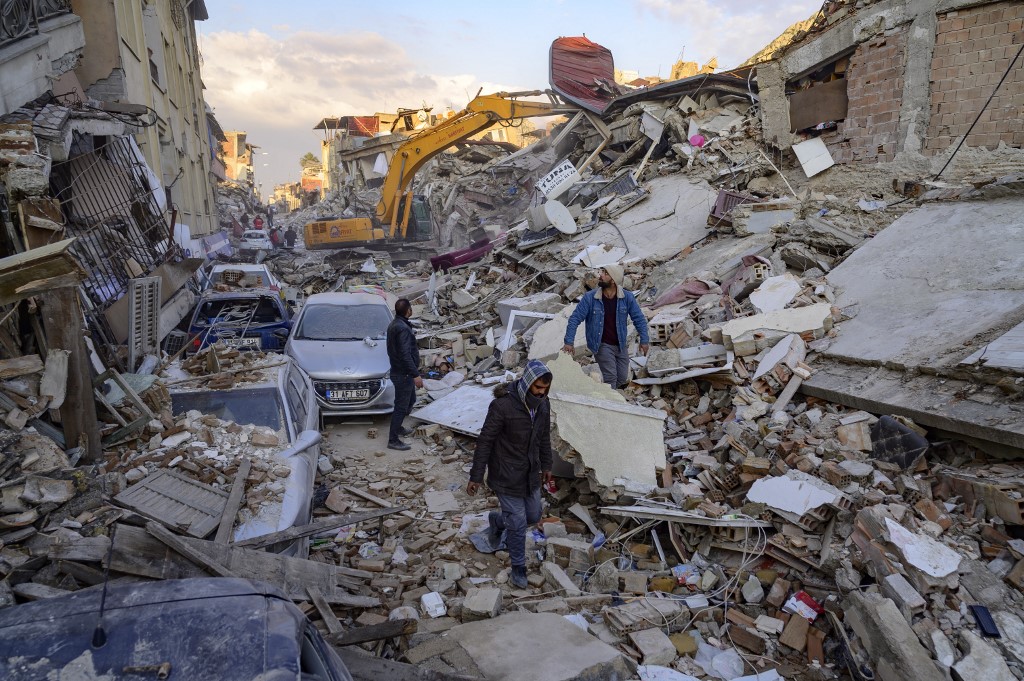As Turkey attempts to deal with the devastation caused by a magnitude 7.8 earthquake in the south of the country on Feb. 6, questions are being raised about actions that might have worsened the effects of the disaster, in particular a so-called construction amnesty.
The 7.8-magnitude quake, which struck near the city of Gaziantep as people slept on Feb. 6, was followed by dozens of aftershocks, including a 7.5-magnitude temblor that jolted the region in the middle of search and rescue efforts the same day.
According to the latest official figures, the quakes have killed 29,605 people and injured more than 80,000 across the 10 hardest-hit southeastern provinces.
Turkey’s ruling Justice and Development Party (AKP) pushed ahead with legislation on a construction amnesty, under which previously illegal buildings were approved without requiring that they comply with an updated building code, before the presidential and parliamentary elections of 2018 in a move apparently intended to woo voters.
A total of 438,000 property owners benefited from the legislation and had their buildings approved by paying a fine without the need to conform to the building code, putting the responsibility for earthquake readiness on the property owners.
A video showing President Recep Tayyip Erdoğan bragging about this legislation went viral following the earthquake.
In the video Erdoğan says in rallies in Kahramanmaraş, Hatay and Gaziantep in 2019, which are among the hardest-hit provinces from last week’s earthquake, that his government “solved the problems” of 438,000 people with the construction amnesty legislation.
The video, which shared widely on social media, brought Erdoğan widespread criticism for putting people’s lives at risk by allowing construction violations in a country that is located on major fault lines.
“They turned the buildings where people live into graves and they took their money in return,” said main opposition Republican People’s Party (CHP) leader Kemal Kılıçdaroğlu at a meeting of his party over the weekend, criticizing the AKP government for the controversial legislation.
“That is how he invited disaster,” tweeted Tuncay Özkan, another CHP politician, as he shared Erdoğan’s video.
Felaketi böyle çağırdı! pic.twitter.com/rYZMGT0zqp
— Tuncay ÖZKAN (@ATuncayOzkan) February 11, 2023
Cemal Enginyurt, deputy chairman of the opposition Democrat Party, said on Twitter, “Erdoğan says he solved the problems of the people in Kahramanmaraş, Gaziantep, Hatay with the construction amnesty. Yes, you did. Millions are left homeless. Tens of thousands of our people have been killed. The entire world has seen how you resolved it.”
Following another powerful earthquake in Turkey’s Marmara region in August 1999, which left more than 17,000 people dead, Turkey tightened its building code to make buildings more earthquake resistant, but there have always been shortcomings in the implementation of the code, and the construction amnesty came as a blow to efforts aimed at constructing safer buildings.
The first such legislation went into force in 1984 and was pushed many times by subsequent governments to win support.
According to a booklet on the construction amnesty published by the Ministry of Environment, Urbanization and Climate Change in 2018, more than 50 percent of the buildings in Turkey were constructed in violation of the current building code.
Environment Minister Murat Kurum said in response to an opposition politician who directed questions to him in October that 7,085,969 buildings were approved in line with the construction amnesty legislation, 5,858,927 of which were residences.
Shortly after the legislation came into effect, the Union of Chambers of Turkish Engineers and Architects (TMMOB) Ankara branch chair Selim Tulumtaş warned in remarks to the Turkish media that the legislation put the lives of 2.7 million people across the country at risk since they live in shoddily constructed buildings.

